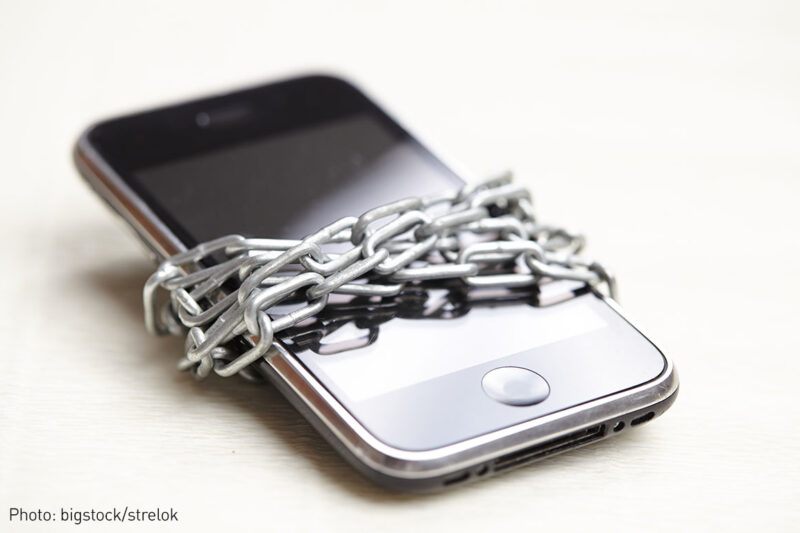
The government argued before a federal judge in Brooklyn yesterday that it should be able to force Apple to unlock an iPhone as part of a criminal investigation.
We have explained why we think what the government has asked for is unlawful. But there were two critical moments at the hearing yesterday that crystallized the sheer breadth of the government’s legal theory about when it can compel private companies to assist in its investigations.
When federal magistrate Judge Orenstein first received the government’s request for a court order to compel Apple to break into the iPhone, he expressed uncertainty about whether the law the government relied on — the All Writs Act, an 18th-century law that, in part, allows federal courts to issue orders to effectuate otherwise valid orders — allowed the government to force Apple to do its dirty work. Judge Orenstein solicited views on the question from both Apple and the government, and the competing positions were on display at yesterday’s fascinating hearing.
The hearing was full of memorable moments — for example, when Judge Orenstein flatly told the government that the “surpassing lengths” to which its went “to question the patriotism of a company standing on its rights” were “not helpful.” Yet two other moments may have particularly lasting significance.
The first was Judge Orenstein’s lethal-injection hypothetical. Apple argued in its brief that forcing it to unlock one of its customer’s iPhones was a form of impermissible conscription into governmental service, not authorized by the All Writs Act because Apple does not possess the information that the government is after. Apple likened the order that the government sought to one compelling an unwilling locksmith to break into a client’s home.
Judge Orenstein described the locksmith hypothetical as fanciful, but he posed one of his own to the government: If the last manufacturer of the lethal-injection cocktail decided to stop manufacturing that cocktail, could the government rely on the All Writs Act to force the company to keep making the drugs?
The obvious answer to this question is “no.” But the assistant U.S. attorney representing the government studiously avoided answering it for five excruciating minutes. She likely hesitated because the scenario exposes the breadth of the government’s legal position. If the government can force Apple and any other tech companies to break into devices that they’ve sold and no longer own or possess, what is the limit on the government’s ability to conscript private parties into governmental service? The government’s unwillingness to answer Judge Orenstein’s question suggests that the government doesn’t believe that there is a categorical limit.
The second critical moment of the hearing came when Apple’s lawyer addressed the elephant in the room. Judge Orenstein asked whether it was worth fighting over the iPhone at issue, which runs Apple’s mobile operating system iOS 7, given that soon nearly all iPhones will run later versions of the software (iOS 8 and 9), which Apple cannot easily unlock. Apple’s lawyer responded with a key point: It’s far from clear where the government’s legal theory ends. In other words, if the government can compel Apple to unlock a device, why couldn’t it compel Apple to engage in more insidious attacks on its users? It is true that iOS 8 and 9 are more secure than iOS 7, but could the government require Apple to send a malicious software update to a suspect’s phone that compromises that security in order to make the data accessible? Could it compel Apple to engage in so-called “man in the middle” attacks on its users’ end-to-end encrypted iMessages or Facetime calls?
These are troubling possibilities that the government’s theory appears to contemplate. Of course, we don’t think the All Writs Act allows the government to commandeer its citizens in that fashion. But even if it did, that sort of compulsion would be unconstitutional. We explained why in a friend-of-the-court brief that we filed in Apple’s case. Unfortunately, Judge Orenstein rejected the brief, saying that he was satisfied with Apple’s ability to represent itself. We hope that means that he will reject the government’s radical legal theory without needing to reach the underlying constitutional questions.
We should know soon enough. Judge Orenstein said that he intends to rule quickly. So stay tuned.


